It's Complicated
 for some drug content and sexuality.
for some drug content and sexuality.
Reviewed by: Scott Brennan
CONTRIBUTOR
| Moral Rating: | Very Offensive |
| Moviemaking Quality: |
|
| Primary Audience: | Adults |
| Genre: | Romance Comedy |
| Length: | 1 hr. 58 min. |
| Year of Release: | 2009 |
| USA Release: |
December 25, 2009 (wide—2,800+ theaters) DVD: April 27, 2010 |
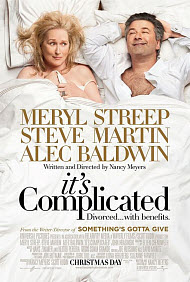

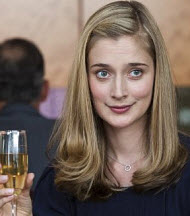




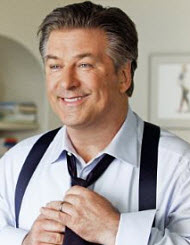
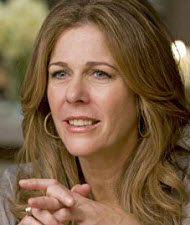
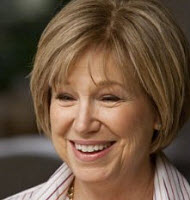
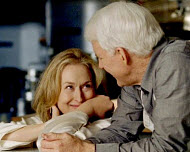

What is true love and how do you know when you have found it? Answer
Lust in the Bible
Should I save sex for marriage? Answer
How can I deal with temptations? Answer
Marriage in the Bible
DIVORCE AND REMARRIAGE—Under what conditions may Christians divorce and remarry? Answer
What does it mean to be “the husband of one wife”? Answer
Is formalized marriage becoming obsolete? Answer
Many people are convinced that traditional marriages don’t work and that this practice should be abandoned. What does the Bible say about marriage?
| Featuring |
|---|
| Meryl Streep (Jane), Steve Martin (Adam), Alec Baldwin (Jake), John Krasinski (Harley), Lake Bell (Agness), Mary Kay Place (Joanne), Rita Wilson (Trisha), Alexandra Wentworth (Diane), Hunter Parrish (Luke), Zoe Kazan (Gabby), Caitlin Fitzgerald (Lauren), Emjay Anthony (Pedro), Nora Dunn (Sally), Bruce Altman (Ted), Robert Curtis Brown (Peter), James Patrick Stuart (Dr. Moss), See all » |
| Director |
|
Nancy Meyers |
| Producer |
| Universal Pictures, Relativity Media, Waverly Films, Scott Rudin Productions, Suzanne McNeill Farwell, Ilona Herzberg, Nancy Meyers, Scott Rudin |
| Distributor |
“Divorced… with benefits.”
The movie “It’s Complicated” was anything but. It was simple. It was a romantic comedy, with a triangular love affair that I’d seen before in a hundred different disguises, but all of them cut from the same cloth—fabricated, contrived, unconvincing, and somewhat vapid. My disappointment stemmed from feeling slighted over the real potential that was buried in the film, namely the impact of divorce on their adult children. As I headed to the car this Christmas night, after leaving the theater, I pondered over the fact that, for as long as I could remember, I hadn’t really seen a great film about the “complications” of divorce. But only seconds later I recalled one. Of course! It was the 1979 film “Kramer vs. Kramer,” the movie that first introduced me to Meryl Streep, an actress who was unknown to me before that year. In that film, divorce was “complicated,” and Meryl earned her first Oscar for Best Supporting Actress. That year I enrolled in my own personal “Meryl Streep Fan Club,” and have been faithfully viewing all her films ever since. This was the sole reason for my purchase of a ticket today.
That being said, I don’t want to dismiss the work of writer-director Nancy Meyers (“What Women Want,” “Something’s Gotta Give,” “The Holiday”) as without merit. Ms. Meyers is definitely an “A-List” female director (IMDB says she’s the top female grossing director surpassing even Penny Marshall). Full disclosure here: I’ve not seen any of Nancy Meyer’s other films before tonight, unless I am just forgetting, so I really can’t compare this film to her previous work. But what that does speak to is the fact that her audiences tend to be more strongly supported by the female persuasion. Some may refer to the genre as “chick flick” [or “hen flick” in the case of this film, since Meryl is now 60], although I’d say it was a fairly well balanced audience (male/female) in the theater this evening. If I were a betting man, I’d say the nearly full house in the theater had very few adults under the age of 35. The crowd that filled the seats consisted of mostly middle-aged couples, some younger ones on “date night,” and the traditional girls-night-out group. I heard one 40 something husband remark to his wife on the way out, “That wasn’t that bad of a film.” Apparently the Golden Globe nominators agreed, because, if my facts are straight, the screenplay was just nominated for a Globe in the same category last week.
As to the plot, if you saw the trailer, you basically know the details. Jane Adler (Streep) is a middle-aged woman in her 10th year of divorce that is seeing the last of her 3 adult children off to college in the early moments of the film, and is planning a New York City trip to watch her son graduate from college. Jake Adler (Alec Baldwin) plays the divorced attorney husband who still lives in their insulated Santa Barbara community with the new wife (Lake Bell) who is 25 years his junior with a bratty kindergarten age son of her own. Jake is also planning to attend the graduation in New York which sparks the adulterous affair (with his own ex-wife) when Jake’s wife is unable to come along. Meanwhile, upon return to Santa Barbara, the plot thickens when Jane’s architect Adam (Steve Martin), himself recently divorced, takes an interest in Jane, as well. Of course, keeping this all a secret from their adult children provides part of the suspense, as well as Jane’s ambivalence in making a decision about what she wants and with whom. This becomes the basis for the ascent to the climax of the film: Will she or won’t she?
Negatives
First, the script is choppy in the beginning, and the pacing seems off. For example, the son-in-law-to-be, well-played by John Krasinski (from television’s “The Office”)—obviously cast to appeal to the younger crowd—could easily be mistaken for one of Jane Adler’s children for at least 2 or 3 scenes before it’s clear what part he plays in the film. Second, although it was part of the story, the very “laisser-faire” attitude towards adultery, bordering on glorification of it, exhibited by the other characters in the film, was disturbing, to say the least. When Jane was dealing with the fear and guilt, her psychologist for 8 years says, “Let go Jane, it can’t hurt.” Even Jane disagrees in the film when she says to Jake, “What we did was so wrong, on so many levels.” And then they laugh about it. It’s what a good friend of mine refers to as a “false dichotomy.” The other sexual situations were not really graphic, but, by implication, most definitely added to the “R” rating.
In addition, the film seemed to deviate from a farcical, stereotypical romantic comedy—Jake (Baldwin) running across the lawn to peer voyeuristically through the kitchen window in a Peter Sellers kind of way—to one that was attempting to communicate a serious and dramatic tone—one with real pain. And those two things didn’t mesh well in the script or on screen. Finally, and I find this the most objectionable part of the film, was the wholesale devotion to glorifying pot smoking. Despite the fact that both of the two main characters that indulged in the film said they hadn’t done so in 27 years (to their credit) they fell off the wagon with such ease. It was a full 15-20 minutes that pushed this part of the plot along for cheap laughs—where challenging writing would have been preferred. In my opinion, this was a thinly-veiled commercial for the legalization of marijuana—a slap in the face to all families and marriages who have endured the suffering of drug addiction on multiple levels.
Positives
As I said in the outset, I’m in the Meryl Streep Club. In spite of the shortcomings of the script, Meryl filled the character of Jane Adler entirely, and brought her completely to life—not that I expected anything less from the greatest actress of our generation. However, in terms of straight acting, her role as Julia Child in “Julie & Julia” earlier this year was far superior to this one. But, for those fans like me, you’ll probably see the film no matter what I say.
Alec Baldwin’s character was believable, and he flowed well with Streep on screen—although, I don’t think we saw all of the depth that could have been revealed—had Ms. Meyers stayed more on the dramatic side with the script. There were hints of this when he started to become truthful toward the end of the film, but, then again, the film really wasn’t supposed to be about him in the end anyway.
Summary
The film will probably be a mediocre palate-pleaser for the average movie-goer. Not great, but not bad either: a great escape for those who want to peer into the privileged lives of Santa Barbara’s upper crust (which includes a lot of Hollywood, in real life) and kid themselves into believing that’s the way it really is. But for those of us with a different worldview, like me, who grew up in a family with “divorce as the centerpiece,” we know differently. The Scripture in Mark 10:9 really stands out in light of this film. “What God has joined together, let no one separate” (NKJV).
There were a couple of places where I really “teared up” in the film, and both of them had to do with the children. One of Jane’s daughters said it best, “I am definitely damaged… And we’re still getting over the divorce.”
Personally, I believe that the “light comedy” in the beginning could have successfully propelled this into a powerful film about that damage her daughter mentioned, had it been given a chance. Unfortunately, in spite of the Golden Globe nomination for best screenplay, what was delivered is a “glossed over version of reality” where chocolate croissants baked in the late night hours to quench “the munchies” became the Jane Adler solution for blocking out a second adulterous affair, the seemingly casual indifference toward divorce, and the pain of her adult children. Nothing was learned, nothing had truly changed. And the rain in the final scene, for me, created no sense of cleansing or rebirth, but perpetuated instead, a sense of denial. If just enough rain will come, maybe all the bad memories will wash away and allow me to be free from the guilt and the shame—a cry that emanates from the hearts of so many in our world today. For the believer: you can skip this film. There’s nothing new here, only the same old darkness peering out into space—looking for love.
Violence: None / Profanity: Minor / Sex/Nudity: Moderate
DIVORCE AND REMARRIAGE—Under what conditions may Christians divorce and remarry? Answer
See list of Relevant Issues—questions-and-answers.


none
Moral rating: Very Offensive / Moviemaking quality: 2½
Furthermore, I couldn’t help but consider whether or not this movie was another ‘Oprah project,’ because a snippet of her show was shown in the movie. While I did walk away from the film knowing that it is best to pray and trust in God to give my husband and I the strength, wisdom, and patience to make our marriage work (if it’s God’s will that I get married), I was still mindful of the subject matter that were definitely not Biblical.
It’s disappointing that hardly anything promoting traditional marriages between a man and a woman (that isn’t distorted by other weird messages) can come out of Hollywood, especially at a time when people are desperate to know and be assured that marriages can and do work. Save your money, and don’t promote a message that is not God’s ideal. Think of all the better ways you could invest your $7 or $10 to benefit God’s Kingdom.
Moral rating: Very Offensive / Moviemaking quality: 4


There were laughs galore, and I guffawed with the whole adult audience, knowing of course, that this film is yet another reflection of today’s immoral society. Without Christ, morality and wisdom are just not possible.
My Ratings: Moral rating: Very Offensive / Moviemaking quality: 4½